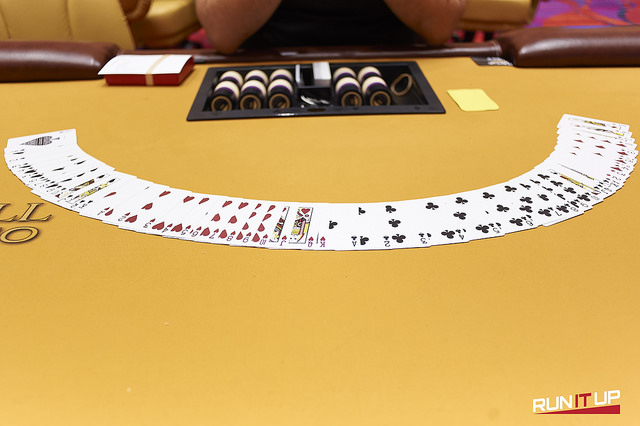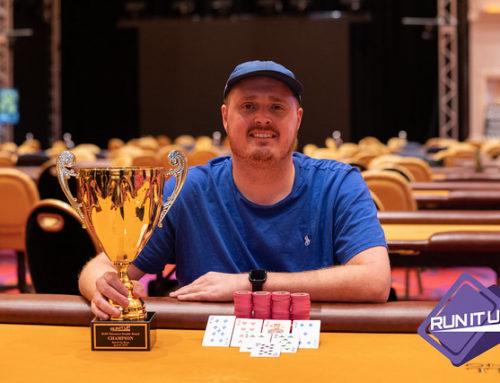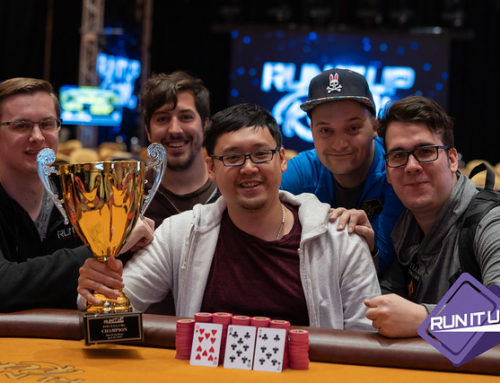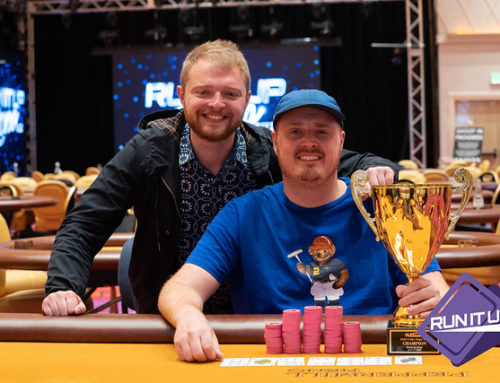The first Taiwanese poker tourney in the history of humanity took place at Run It Up Reno last April and is back on schedule this series. This new game of poker has gained a lot more popularity within the last few months and is being spread all over the world today.
For those of you who are not familiar with the game, here is how it works:
Each player is dealt seven cards and they will break it into three separate hands – a one-card hand up top, a two-card hold’em hand in the middle, and a four-card Omaha hand in the back. Then a flop, turn, and river are dealt out across the middle of the table, as in any other flop game where players are all in.
Then you score your hands against each other. You play your one-card hand against everybody else’s one-card hand, your hold’em hand against their hold’em hand, and your Omaha hand against everybody’s Omaha hand.
Winning the one-card hand is worth one point, winning the hold’em hand is worth two points and winning the Omaha hand is worth three points, but the scoring doesn’t stop there. If you scoop an opponent and win all three hands, you get an extra three points as a bonus. There are also bonus points, known as royalties to veterans of Chinese Poker, for specific hand rankings in different spots.
Below are the details of this event:
- There is a 5,000 guarantee in the prize pool.
- Players start with 10,000 in tournament chips.
- Levels will be of 20 minutes.
- This is a big blind ante event. The big blind is posted prior to the ante and the ante will become the size of the small blind when the table becomes four-handed.
- Tournament will play 5 handed.
- Players are paid out a maximum of what they currently have behind their stack
- The top/high card board is scored first (and then the middle/2 cards board, and finally the bottom/4 card board.
- If a player loses all of their chips after paying out the top (and/or middle) board then they are eliminated from the tournament, even if they have a winning middle or bottom board.
- A high card will be used to select which player will be moved to another table for rebalancing.
- If a player is not present at the conclusion of the deal, their hand is dead and they will have to pay out the required non-bonus points to the winning player(s).



